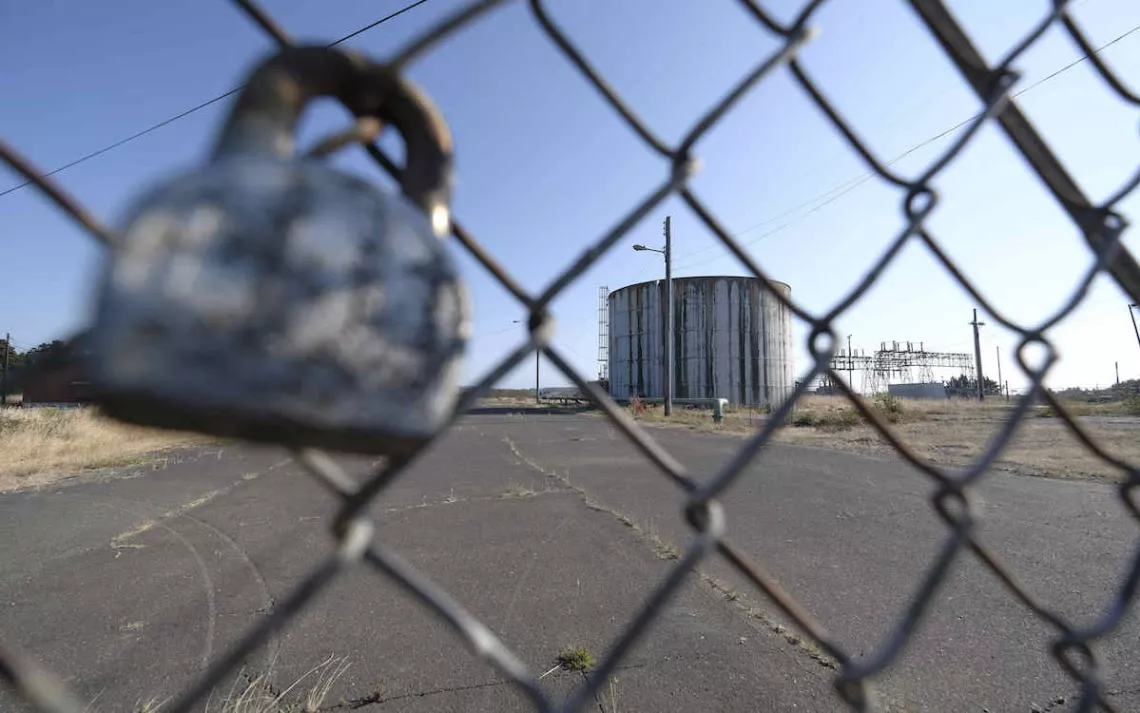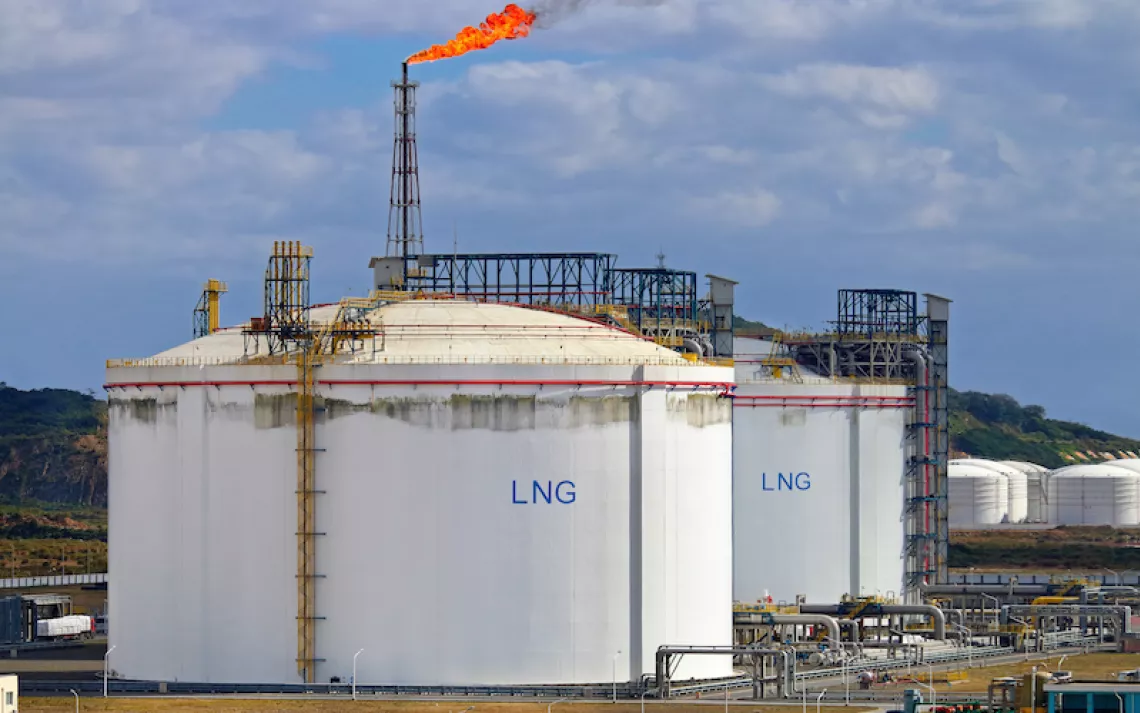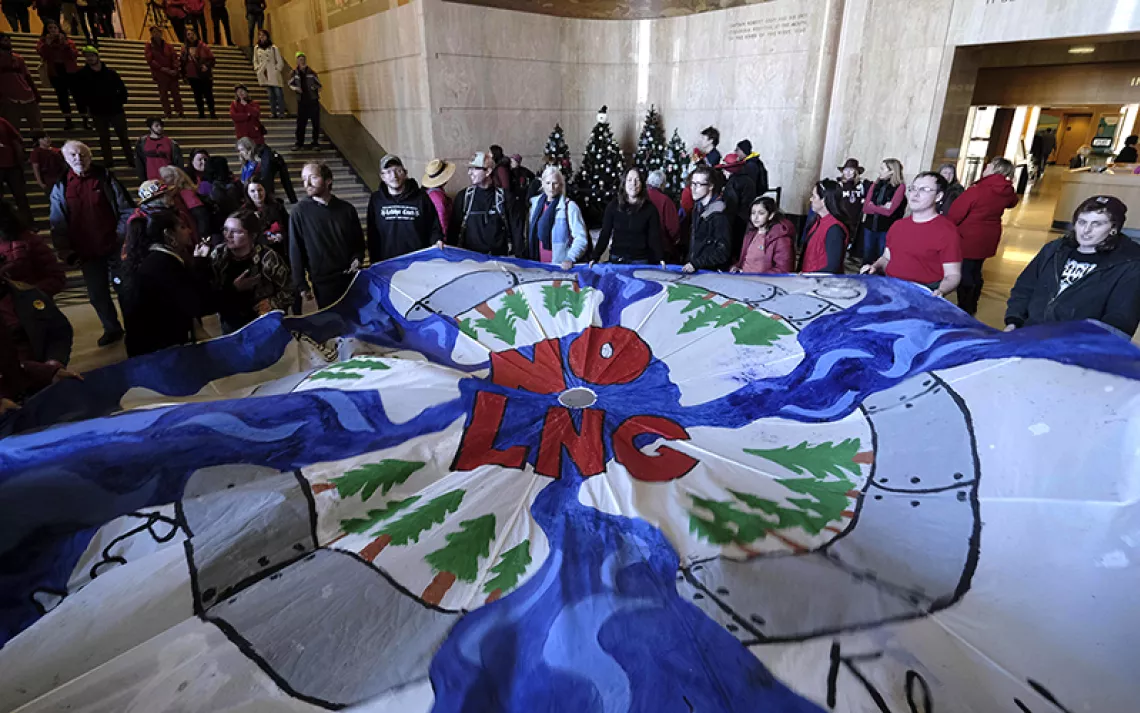Jordan Cove Is Dead—for Real!
Developers behind the proposed LNG export terminal in Oregon pull the plug on their project

A scene from Jordan Cove Road in North Bend, Oregon, on July 28, 2020, near the proposed site of Pembina's Jordan Cove liquefied natural gas export terminal. | Photo by Alex Milan Tracy/Sipa USA/Sipa via AP Images
It happened with a whimper, not a roar.
On December 1, Canadian company Pembina filed a (very brief) brief with the Federal Energy Regulatory Commission (FERC), asking the agency to “vacate the authorizations” it had issued for Jordan Cove LNG and the Pacific Connector Pipeline back in 2020.
The company has decided not to move forward with the controversial gas-export project, the brief explained, citing concerns over its ability to obtain the necessary state permits in addition to “other external obstacles.”
This happy news came on the heels of FERC’s decision to reevaluate its authorization for the project. The agency was ordered to do so by the DC Circuit Court of Appeals in early November, after hearing oral arguments from attorneys representing landowners, environmental groups, and the State of Oregon. These groups and several Oregon Native American nations had filed suits arguing that FERC failed to consider the project’s impact on tribes, landowners, and the environment and never should have granted the certificate in the first place.
FERC commissioner Richard Glick apparently agreed, publicly stating recently that its decision on Jordan Cove was “yet another example … where the Commission made numerous mistakes.”
The takeaway from all of this legal maneuvering is that years of grassroots pressure and persistence have finally paid off.
“This is a great day for landowners along the pipeline route, and a great day for Oregon,” said landowner Deb Evans in a press release. “This has been a long time coming, and we are so relieved that the threat of eminent domain is no longer hanging over us.”
“Jordan Cove LNG finally recognizing that this ill-advised project will never be built represents a hard-fought victory for Oregon communities who have worked for more than a decade to protect their land and water from dangerous fracked gas infrastructure,” said Nathan Mathews, senior attorney at the Sierra Club, who had argued the case before the DC appellate court. “The fossil fuel industry would have us believe that their plans for a massive expansion of gas exports are a done deal, but this is proof that that’s far from the case.”
 The Magazine of The Sierra Club
The Magazine of The Sierra Club






